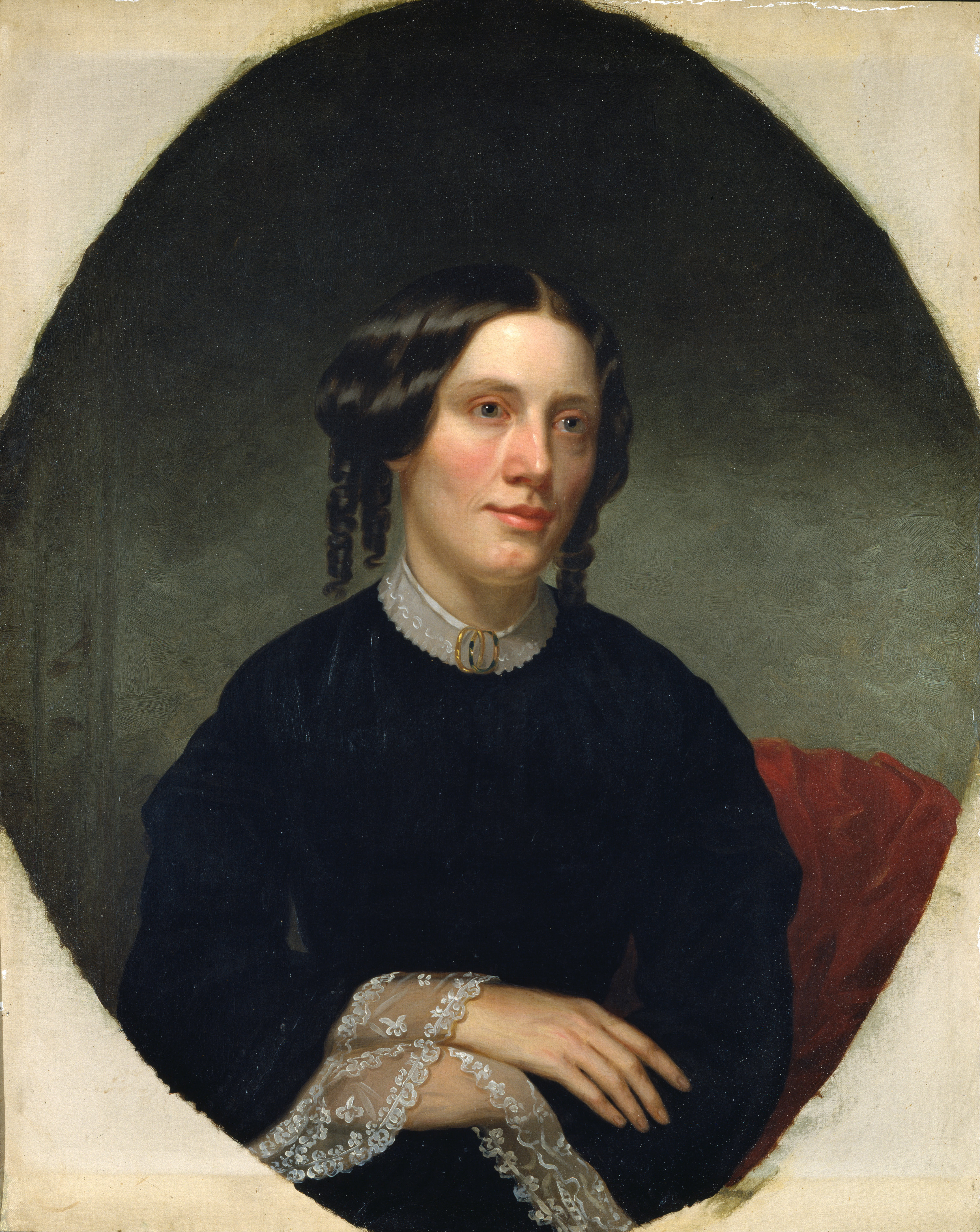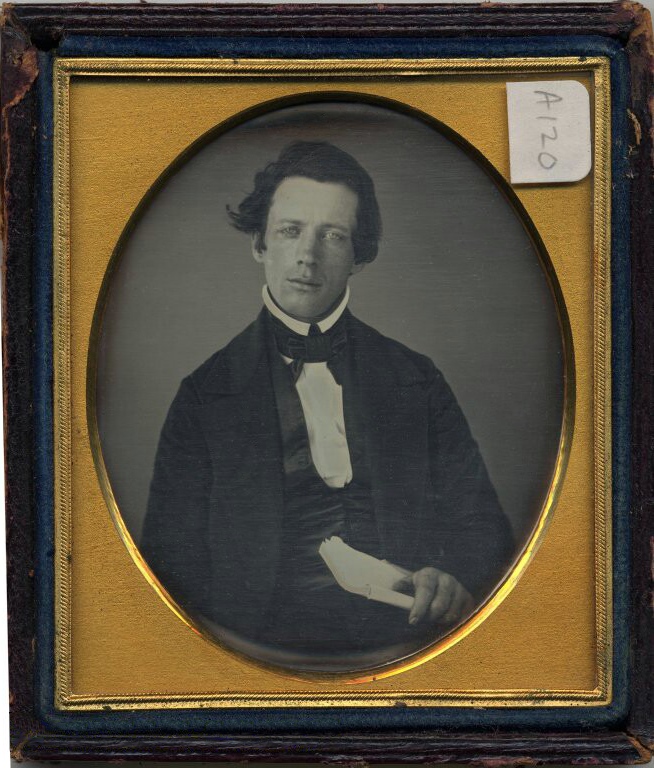|
Brocklebank–Nelson–Beecher House
The Brocklebank–Nelson–Beecher House (circa 1668) is a First Period Colonial house located at 108 East Main Street (Route 133), Georgetown, Massachusetts. It is now a nonprofit museum owned by the Georgetown Historical Society. An admission fee is charged. History In 1661, the house's land was granted to Captain Samuel Brocklebank, a surveyor who had come from England in 1638. It is believed that Brocklebank built the house shortly after his marriage in 1668, near a brook where he had kept cattle penned previously. Brocklebank, a captain in the militia, was killed with his entire company in Sudbury in 1676 in a skirmish with Indians during King Philip's War. The house remained within the family until 1754, when it was acquired by Dudley Tyler for use as a tavern, which use continued under Solomon Nelson who purchased the property in 1767. In 1858 the house was bought by Rev Charles Beecher, brother of Harriet Beecher Stowe and Henry Ward Beecher Henry Ward Beecher (J ... [...More Info...] [...Related Items...] OR: [Wikipedia] [Google] [Baidu] |
Colonial America
The colonial history of the United States covers the period of European colonization of North America from the late 15th century until the unifying of the Thirteen British Colonies and creation of the United States in 1776, during the Revolutionary War. In the late 16th century, England, France, Spain, and the Dutch Republic launched major colonization expeditions in North America. The death rate was very high among early immigrants, and some early attempts disappeared altogether, such as the English Lost Colony of Roanoke. Nevertheless, successful colonies were established within several decades. European settlers came from a variety of social and religious groups, including adventurers, farmers, indentured servants, tradesmen, and a very few from the aristocracy. Settlers included the Dutch of New Netherland, the Swedes and Finns of New Sweden, the English Quakers of the Province of Pennsylvania, the English Puritans of New England, the Virginian Cavaliers, the Engl ... [...More Info...] [...Related Items...] OR: [Wikipedia] [Google] [Baidu] |
Georgetown, Massachusetts
Georgetown is a New England town, town in Essex County, Massachusetts, Essex County, Massachusetts, United States. The population was 8,470 at the 2020 United States census, 2020 census. It was incorporated in 1838 from part of Rowley, Massachusetts, Rowley. History Georgetown was originally settled in 1639 as a part of the town of Rowley, Massachusetts, Rowley by the Reverend Ezekiel Rogers. The town at the time stretched from the Atlantic coast to the Merrimack River, south of Newbury, Massachusetts, Newbury and north of Ipswich, Massachusetts, Ipswich. Several farmers, finding suitable meadowlands in the western half of the settlement, began settling along the Penn Brook by the middle of the seventeenth century, creating Rowley's West Parish. Though not directly involved in King Philip's War, the village nonetheless did become a victim of Indian raids. The village, which became known as New Rowley, grew for many years, with small mills and eventually a shoe company opening ... [...More Info...] [...Related Items...] OR: [Wikipedia] [Google] [Baidu] |
Charles Beecher
Charles Beecher (October 1, 1815 – April 21, 1900) was an American minister, composer of religious hymns and a prolific author. Early life Beecher was born in Litchfield, Connecticut, the fifth child of Lyman Beecher, an abolitionist Congregationalist preacher from Boston and Roxana Foote Beecher. He was the brother of Harriet Beecher Stowe, the famous author of ''Uncle Tom's Cabin'', and the brother of renowned Congregationalist minister, Henry Ward Beecher. He also had another prominent and activist sister, Catharine Beecher. He attended Boston Latin School and Lawrence Academy in Groton, Massachusetts, graduated from Bowdoin College in 1834, and then attended Lane Theological Seminary in Ohio. He taught music classes in Cincinnati, Ohio, and received his preaching license from the Presbytery of Indianapolis, Indiana. He served as pastor of the Second Presbyterian Church in Fort Wayne, Indiana, from 1844 until 1851. He was also a prominent member of the Peucinian Soci ... [...More Info...] [...Related Items...] OR: [Wikipedia] [Google] [Baidu] |
Harriet Beecher Stowe
Harriet Elisabeth Beecher Stowe (; June 14, 1811 – July 1, 1896) was an American author and Abolitionism in the United States, abolitionist. She came from the religious Beecher family and wrote the popular novel ''Uncle Tom's Cabin'' (1852), which depicts the harsh conditions experienced by Slavery in the United States, enslaved African Americans. The book reached an audience of millions as a novel and play, and became influential in the United States and in United Kingdom of Great Britain and Ireland, Great Britain, energizing anti-slavery forces in the Northern United States, American North, while provoking widespread anger in the Antebellum South, South. Stowe wrote 30 books, including novels, three travel memoirs, and collections of articles and letters. She was influential both for her writings as well as for her public stances and debates on social issues of the day. Life and work Harriet Elisabeth Beecher was born in Litchfield, Connecticut, on June 14, 1811.McFarla ... [...More Info...] [...Related Items...] OR: [Wikipedia] [Google] [Baidu] |
Henry Ward Beecher
Henry Ward Beecher (June 24, 1813 – March 8, 1887) was an American Congregationalist clergyman, social reformer, and speaker, known for his support of the Abolitionism, abolition of slavery, his emphasis on God's love, and his 1875 adultery trial. His rhetorical focus on Christ's love has influenced mainstream Christianity through the 21st century. Beecher was the son of Lyman Beecher, a Calvinist minister who became one of the best-known Evangelism, evangelists of his era. Several of his brothers and sisters became well-known educators and activists, most notably Harriet Beecher Stowe, who achieved worldwide fame with her abolitionist novel ''Uncle Tom's Cabin''. Henry Ward Beecher graduated from Amherst College in 1834 and Lane Seminary in 1837 before serving as a minister in Lawrenceburg, Indiana, and later in Indianapolis's Second Presbyterian Church (Indianapolis, Indiana), Second Presbyterian Church when the congregation resided at Circle Hall at Monument Circle. In 18 ... [...More Info...] [...Related Items...] OR: [Wikipedia] [Google] [Baidu] |
Historic House Museums In Massachusetts
History is the systematic study of the past, focusing primarily on the human past. As an academic discipline, it analyses and interprets evidence to construct narratives about what happened and explain why it happened. Some theorists categorize history as a social science, while others see it as part of the humanities or consider it a hybrid discipline. Similar debates surround the purpose of history—for example, whether its main aim is theoretical, to uncover the truth, or practical, to learn lessons from the past. In a more general sense, the term ''history'' refers not to an academic field but to the past itself, times in the past, or to individual texts about the past. Historical research relies on primary and secondary sources to reconstruct past events and validate interpretations. Source criticism is used to evaluate these sources, assessing their authenticity, content, and reliability. Historians strive to integrate the perspectives of several sources to develop ... [...More Info...] [...Related Items...] OR: [Wikipedia] [Google] [Baidu] |
Museums In Essex County, Massachusetts
A museum is an institution dedicated to displaying or Preservation (library and archive), preserving culturally or scientifically significant objects. Many museums have exhibitions of these objects on public display, and some have private collections that are used by researchers and specialists. Museums host a much wider range of objects than a library, and they usually focus on a specific theme, such as the art museums, arts, science museums, science, natural history museums, natural history or Local museum, local history. Public museums that host exhibitions and interactive demonstrations are often tourist attractions, and many draw large numbers of visitors from outside of their host country, with the List of most-visited museums, most visited museums in the world attracting millions of visitors annually. Since the establishment of Ennigaldi-Nanna's museum, the earliest known museum in ancient history, ancient times, museums have been associated with academia and the preserva ... [...More Info...] [...Related Items...] OR: [Wikipedia] [Google] [Baidu] |
Houses In Georgetown, Massachusetts
A house is a single-unit residential building. It may range in complexity from a rudimentary hut to a complex structure of wood, masonry, concrete or other material, outfitted with plumbing, electrical, and heating, ventilation, and air conditioning systems.Schoenauer, Norbert (2000). ''6,000 Years of Housing'' (rev. ed.) (New York: W.W. Norton & Company). Houses use a range of different roofing systems to keep precipitation such as rain from getting into the dwelling space. Houses generally have doors or locks to secure the dwelling space and protect its inhabitants and contents from burglars or other trespassers. Most conventional modern houses in Western cultures will contain one or more bedrooms and bathrooms, a kitchen or cooking area, and a living room. A house may have a separate dining room, or the eating area may be integrated into the kitchen or another room. Some large houses in North America have a recreation room. In traditional agriculture-oriented societies, domes ... [...More Info...] [...Related Items...] OR: [Wikipedia] [Google] [Baidu] |
Beecher Family
Originating in New England the Beecher family in the 19th century was a political family notable for issues of religion, civil rights, and social reform. Notable members of the family include clergy (Presbyterians and Congregationalists), educators, authors and artists. Many of the family were Yale-educated and advocated for abolitionism, temperance, and women's rights. Some of the family provided material or ideological support to the Union in the American Civil War. The family is of English descent. Locations named after persons of this family include: Beecher, Illinois, named after Henry Ward Beecher and Beecher Island, named after Lt. Fredrick H. Beecher. History The American Beecher family began with John Beecher from Kent, England. Along with his wife and son Isaac, the Beechers embarked with a company of emigrants and arrived in Boston on June 26, 1637. During its early days, Boston welcomed all Puritan emigrants, though many of these emigrants were not content to sett ... [...More Info...] [...Related Items...] OR: [Wikipedia] [Google] [Baidu] |
Buildings And Structures Completed In 1668
A building or edifice is an enclosed structure with a roof, walls and windows, usually standing permanently in one place, such as a house or factory. Buildings come in a variety of sizes, shapes, and functions, and have been adapted throughout history for numerous factors, from building materials available, to weather conditions, land prices, ground conditions, specific uses, prestige, and aesthetic reasons. To better understand the concept, see ''Nonbuilding structure'' for contrast. Buildings serve several societal needs – occupancy, primarily as shelter from weather, security, living space, privacy, to store belongings, and to comfortably live and work. A building as a shelter represents a physical separation of the human habitat (a place of comfort and safety) from the ''outside'' (a place that may be harsh and harmful at times). buildings have been objects or canvasses of much artistic expression. In recent years, interest in sustainable planning and building pract ... [...More Info...] [...Related Items...] OR: [Wikipedia] [Google] [Baidu] |






